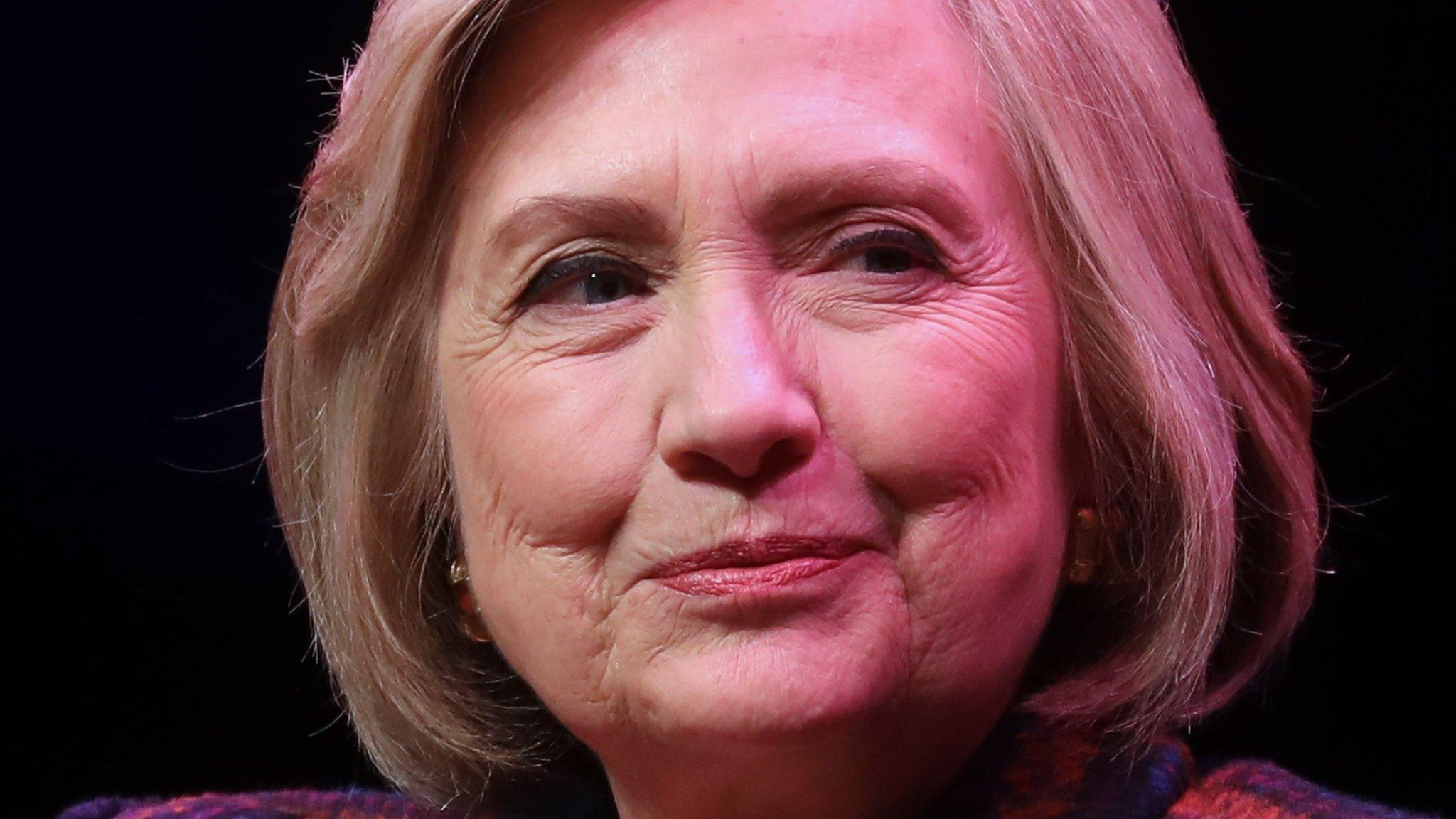US election 2020: Deval Patrick enters the fray
- Published
Deval Patrick tells CBS News he's "been waiting for a moment like this my whole life"
Just when it appeared the Democratic presidential field was shrinking in earnest, it starts expanding again.
First, former New York Mayor Michael Bloomberg began motioning toward a campaign. Now Deval Patrick has jumped in with both feet.
The former Massachusetts governor has a tall task ahead of him if he wants to seriously compete for his party's nomination.
Unlike Bloomberg, he does not have a seemingly bottomless personal fortune to draw on for campaign expenses. Fund-raising is one of the most important components of a successful presidential bid, and Patrick will start at zero with only a few months until the primaries begin.
It appears Patrick will count on his personal charisma and a focus on early voting New Hampshire, which borders his home state, to jump-start his campaign. He is pitching himself as an optimistic mainstream Democrat who can unite the country after the divisive Trump presidency. And he's a charismatic African American candidate who counts the Obamas as close friends.
Somewhere, New Jersey Senator Cory Booker - the other black man in the race, who has struck similar campaign themes - must be shaking his head.
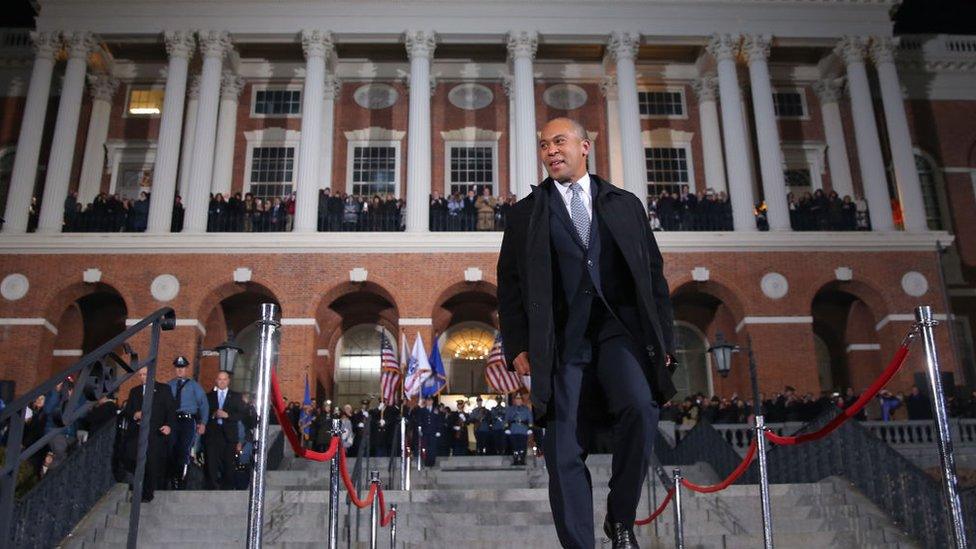
Then-Massachusetts Governor Deval Patrick leaves the state house in January 2015
Other candidates may also be a bit concerned at Patrick's entry. Senator Elizabeth Warren is no longer the only candidate from Massachusetts in the race. She, along with Bernie Sanders and Pete Buttigieg, have been making a strong play for New Hampshire - and they now have to deal with a new, potentially powerful force there.
Joe Biden's camp should also be worried. Not only could Patrick compete for the black voters who make up the former vice-president's base, his entry into the race will be seen as yet another sign that the political establishment is uneasy with the performance of Biden's candidacy so far.
His friendship with Barack Obama could be an indication that the still-popular former president harbours his own doubts about his former vice-president's electoral viability. Although Mr Obama is staying out of backing a horse in this race, there's little doubt Patrick consulted him before launching his bid.
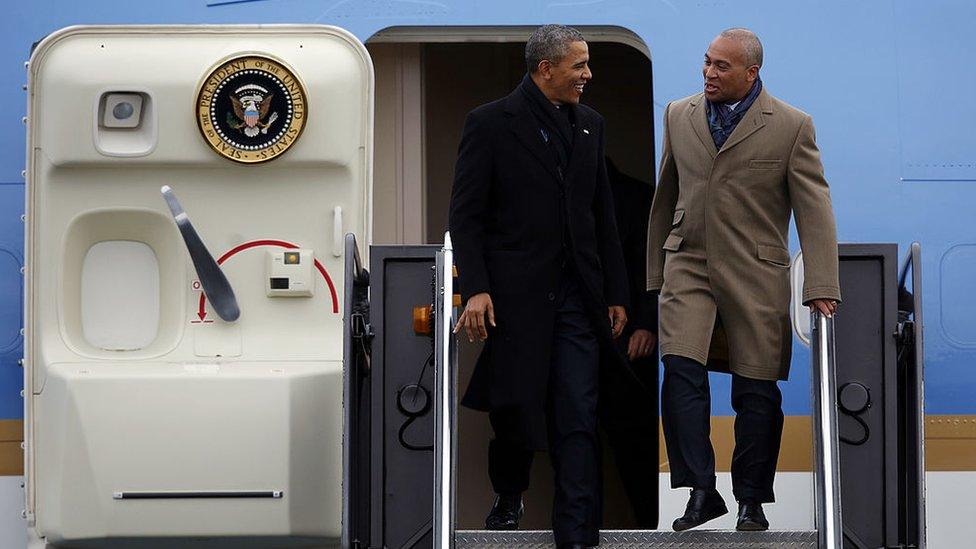
Patrick counts both Barack and Michelle Obama as close friends
Patrick's campaign has a long way to go before it can be considered a serious factor in this race, however.
Will he be able to find the political oxygen in the days remaining to catch fire? He won't qualify for next week's presidential debate and seems unlikely to do so for December's event. As the other candidates left off the stage can attest, not appearing in the monthly face-offs can consign even a gifted politician to also-ran status.
Patrick also will have to address some concerns about his resume. While the former governor is mostly aligned with his party's more liberal politics these days, his recent work with Bain Capital - the same investment firm that was a Democratic punching bag when it employed 2012 Republican presidential nominee Mitt Romney - will set the party's progressives on edge.
Regardless of Patrick's ultimate performance, his entry, and Bloomberg's manoeuvring, paints a picture of a Democratic presidential field still in flux in the home stretch before 2020 primary balloting.
Establishment Democrats are worried progressive candidates like Warren and Sanders are unelectable - or could pull the party too far to the left if they do win. Moderates are uneasy about Biden's political agility and endurance in what will be a gruelling year of campaigning - and don't see any saviours in the current field.
They view Buttigieg as too young and inexperienced. The rest of the pack can't seem to get traction. It's enough to give Democratic voters, who prize unseating Donald Trump above all else, heartburn.
Then there's the spectre of impeachment looming over the entire race. Five of the 10 candidates who have qualified for next week's debate in Atlanta are US senators. There's a very real prospect at this point that Mr Trump will be impeached, and they will all have to spend a big chunk of January in Washington, serving as jurors in the president's Senate trial.
Mr Biden could end up being a witness in those proceedings - or, at the very least, distracted by Republican attempts to paint his son's involvement with a Ukrainian energy company as a corrupting influence on the then vice-president. He could be damaged by it all.
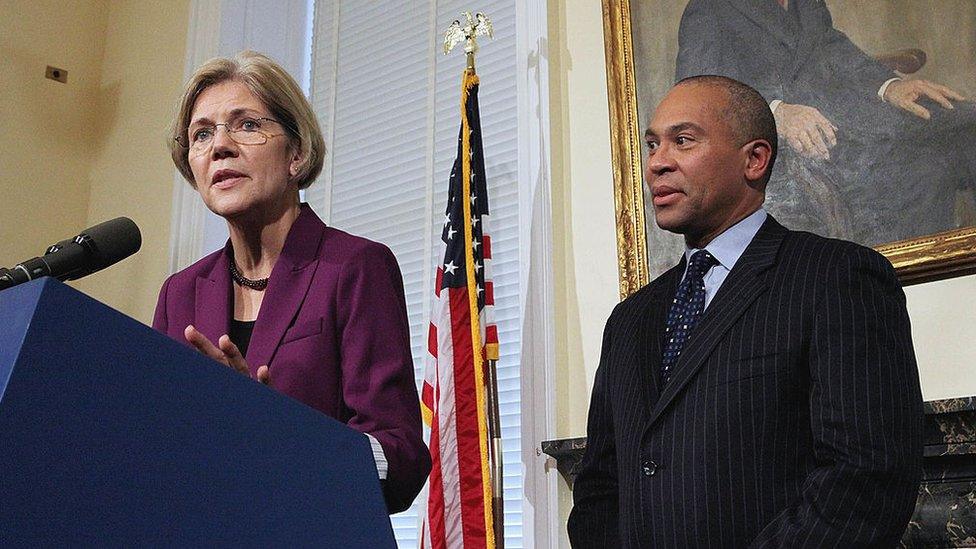
With Mr Patrick's entry, Elizabeth Warren will no longer be the only 2020 candidate from Massachusetts
When a potential candidate like Patrick or Bloomberg surveys a field without a dominant front-runner, where half the participants could be sidelined or preoccupied in the key weeks before primary voting kicks off, that can't help but tickle once-dormant presidential ambitions.
At some point the Democratic race will have to come into focus. Primary voters will cast their ballots, and polls and prognosticators will give way to hard results.
At this point, however, making predictions or setting expectations before then seems a fool's errand. For every moment of clarity, there are two waves of chaos.
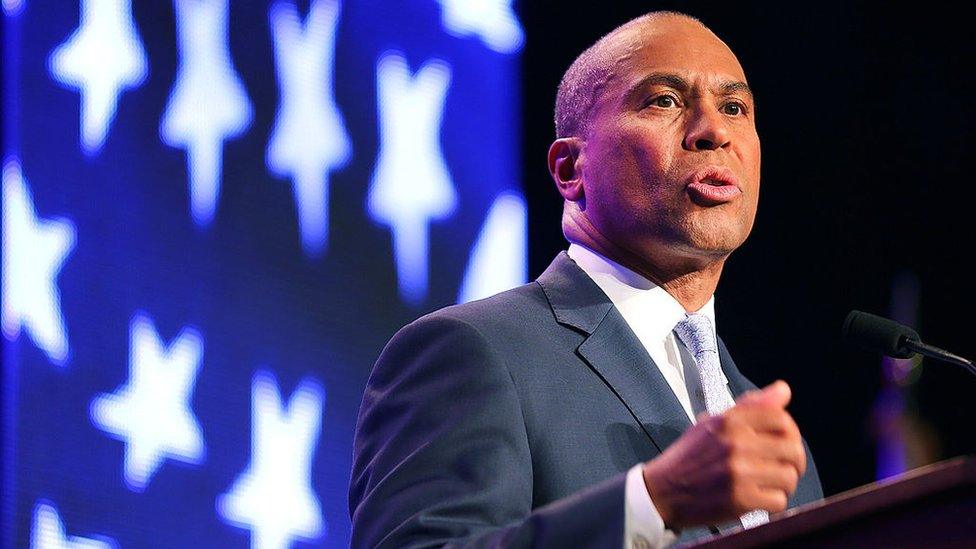

Who will take on Trump in 2020?

Mr Patrick joins an already crowded field vying to take on President Trump in 2020.
- Published14 November 2019
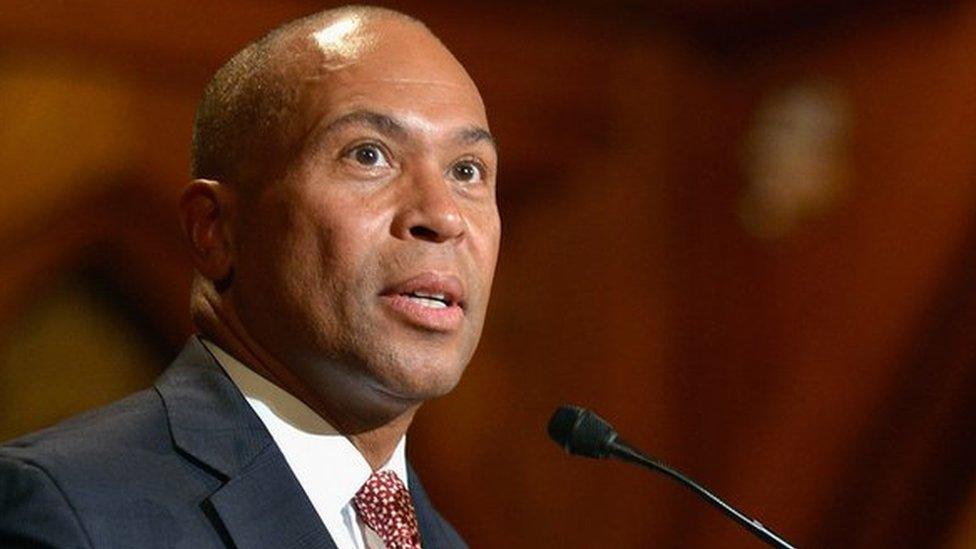
- Published13 November 2019
- Published12 November 2019
